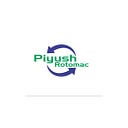Moulding the Way Forward: Rotational Moulding’s Influence on Industries
In the world of manufacturing, innovation often takes the form of finding new, efficient, and cost-effective ways to create products. One such innovation that has been quietly revolutionizing various industries is rotational moulding. This versatile manufacturing process has found its way into diverse sectors, including automotive, agriculture, and recreational equipment, improving operations and product quality.
- Automotive:
The automotive industry is all about precision and durability, and rotational moulding fits the bill perfectly. Rotomoulded components like fuel tanks ensure lightweight yet rugged storage, making vehicles more fuel-efficient without compromising safety. Air ducts crafted through rotational moulding optimize airflow for better engine performance.
2. Agriculture:
Rotomoulding is a game-changer for agriculture. From planting and harvesting to storage and transportation, this method is used to create a wide range of agricultural products. Rotomoulded bins and containers are known for their durability and resistance to weather extremes, ideal for safeguarding crops and equipment. Agricultural tanks, used for storing water or chemicals, are rotomoulded for their resistance to corrosion and the ability to hold large volumes securely.
3. Recreational Equipment:
The recreational equipment industry relies on rotomoulding for products that demand strength and endurance. Kayaks and canoes crafted through this method are lightweight, buoyant, and highly durable, ensuring they can withstand the rigors of outdoor adventures. Playground equipment, such as slides and swing sets, benefits from rotomoulding’s safety features and weather resistance, providing children with hours of safe fun.
4. Customization:
One of the standout features of rotational moulding is its adaptability. Industries that require customized products or prototypes, such as aerospace or marine, benefit from this process. It enables manufacturers to produce one-off or small-batch runs cost-effectively.
Conclusion:
In conclusion, rotational moulding is a manufacturing technique that has found favor in a wide range of industries due to its durability, versatility, cost-efficiency, and environmental friendliness. Whether you’re driving a car with a rotomoulded fuel tank, working on a farm using rotomoulded containers, enjoying outdoor activities with rotomoulded recreational equipment, or utilizing customized products like Dustbins, it’s highly likely that you’ve benefited from these versatile and resilient products. As this innovative process continues to evolve, we can expect even more industries to harness its potential in the future.
